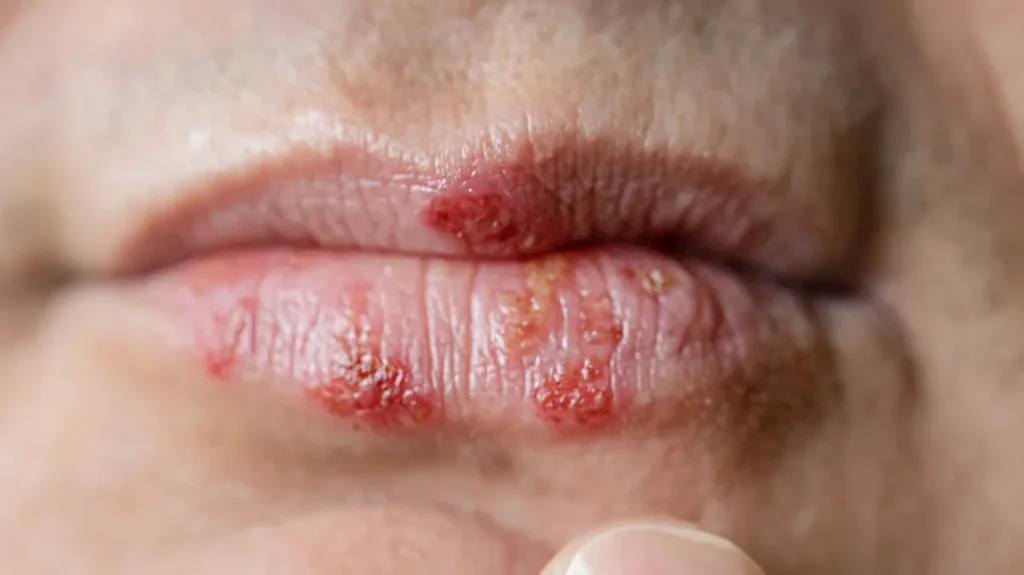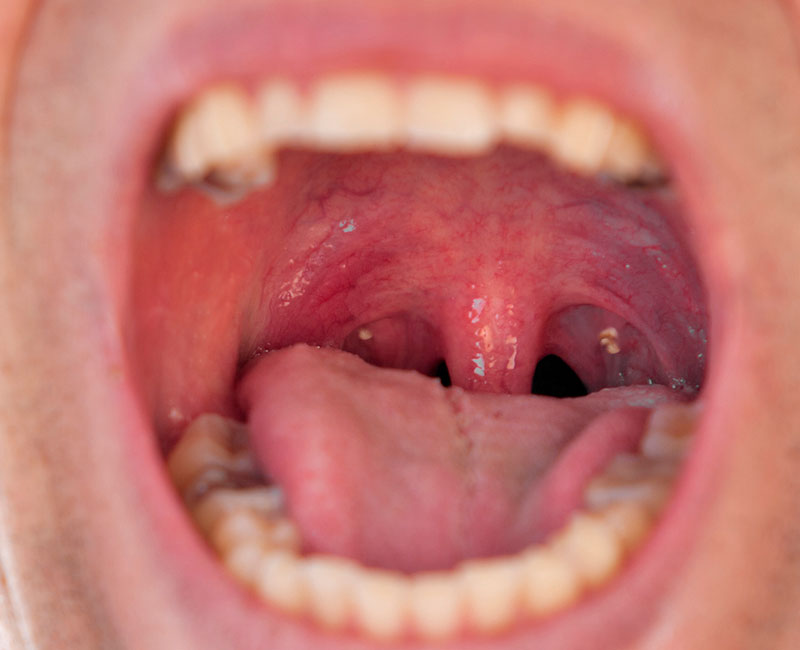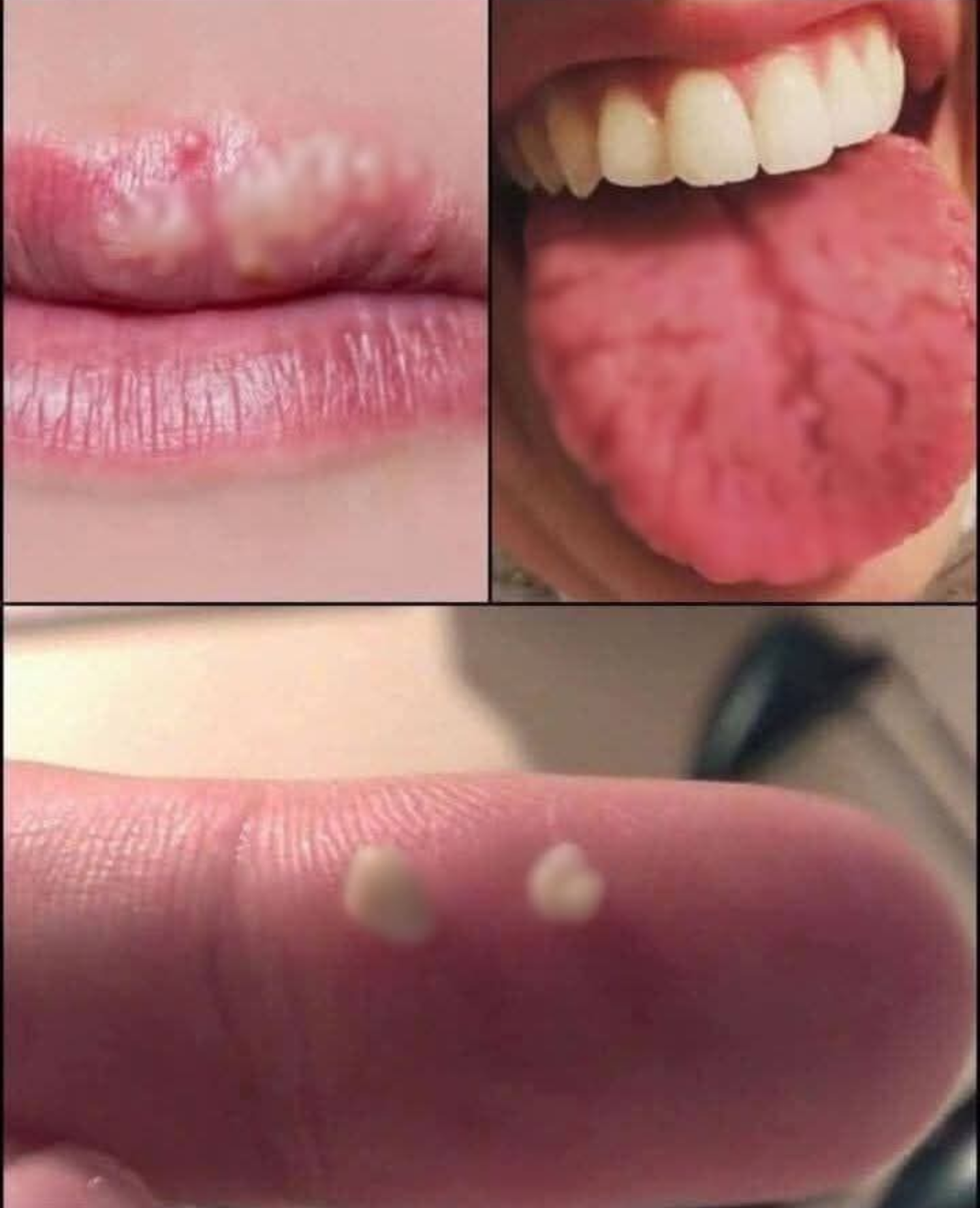BE CAREFUL, if you get these bruises on your body, it means you have Ca… See mor
Your body constantly sends signals about your health. Some of these signs may seem minor or easy to ignore, such as a sore on your lip, a strange pattern on your tongue, or tiny white particles coming from your throat. But in many cases, these are early warnings of underlying health issues.
Health supplements
Here are three symptoms that you should never overlook. Understanding what they mean and how to treat them could protect your health in the long run.
1. Cold Sores on the Lips Might Be a Sign of HSV-1 Infection

Health supplements
Blisters that appear on or around the lips, especially when they are painful and filled with fluid, are most likely cold sores. These are caused by the Herpes Simplex Virus Type 1 (HSV-1), a highly contagious virus that spreads through close contact such as kissing or sharing personal items.
A tingling or burning sensation before the blister appears
Painful sores that crust over after a few days
Recurring outbreaks, especially during stress or illness
What you should do:
Start antiviral treatment as early as possible, ideally at the first sign of tingling
Avoid kissing or sharing items when you have a visible sore
Protect your lips from sun exposure and stay hydrated
Cold sores may seem like a minor inconvenience, but the virus remains in the body for life and can reactivate without warning. Managing triggers like stress and fatigue can help reduce flare-ups.
2. Geographic Tongue Is Harmless But Can Be Uncomfortable

If your tongue develops smooth, red patches with white or light-colored borders, you may have a condition known as geographic tongue. The name comes from the map-like appearance of the affected areas.
This condition is typically harmless but can cause sensitivity or discomfort when eating certain foods.
Common symptoms include:
Irregular, red patches on the surface of the tongue
Sensitivity to spicy, acidic, or salty foods
A burning or tingling sensation in the mouth
What you should do:
Practice good oral hygiene with gentle brushing and non-irritating mouthwash
Avoid foods that trigger discomfort
Stay hydrated and monitor any changes
The exact cause of geographic tongue is unknown, but it is sometimes linked to stress, allergies, hormonal changes, or vitamin deficiencies.
3. Tonsil Stones Could Be the Hidden Cause of Your Bad Breath

Small white or yellowish clumps that you cough up or see at the back of your throat could be tonsil stones, also called tonsillitis. These are formed when food debris, bacteria, and dead cells become trapped in the crevices of the tonsils and calcify over time.
Common symptoms include:
Persistent bad breath
Feeling like something is stuck in your throat
Visible white spots in the tonsil area
Occasional discomfort when swallowing
What you should do:
Gargle regularly with warm salt water to dislodge stones
Use a water flosser or cotton swab carefully to remove visible stones
Visit an ENT specialist if the problem is chronic or severe
Tonsil stones are common in people who suffer from frequent throat infections or have deep tonsil crypts. While they are not usually dangerous, they can be a persistent source of discomfort and embarrassment.
